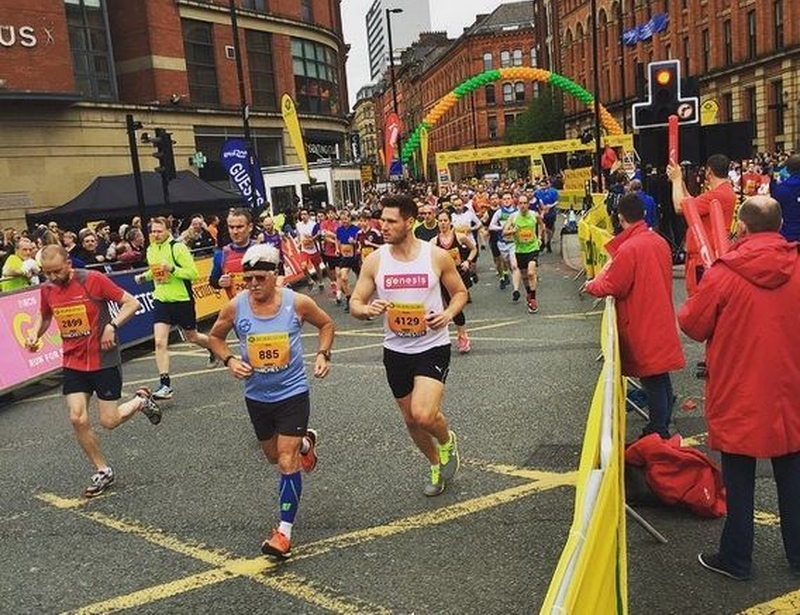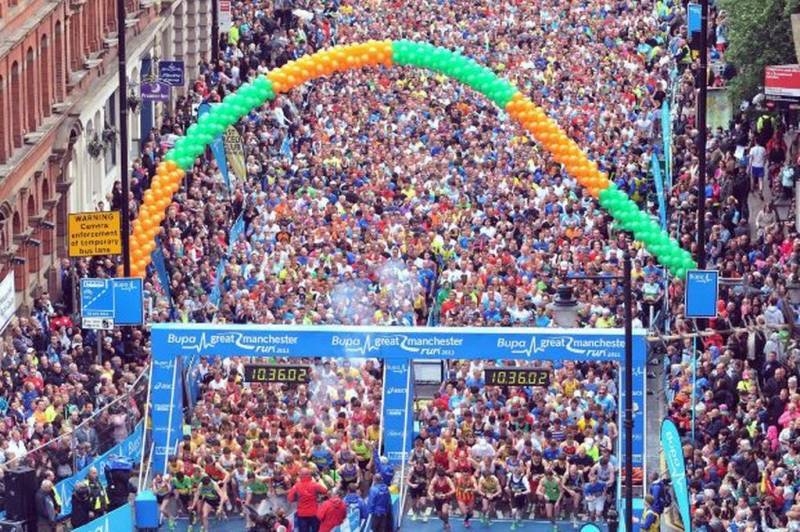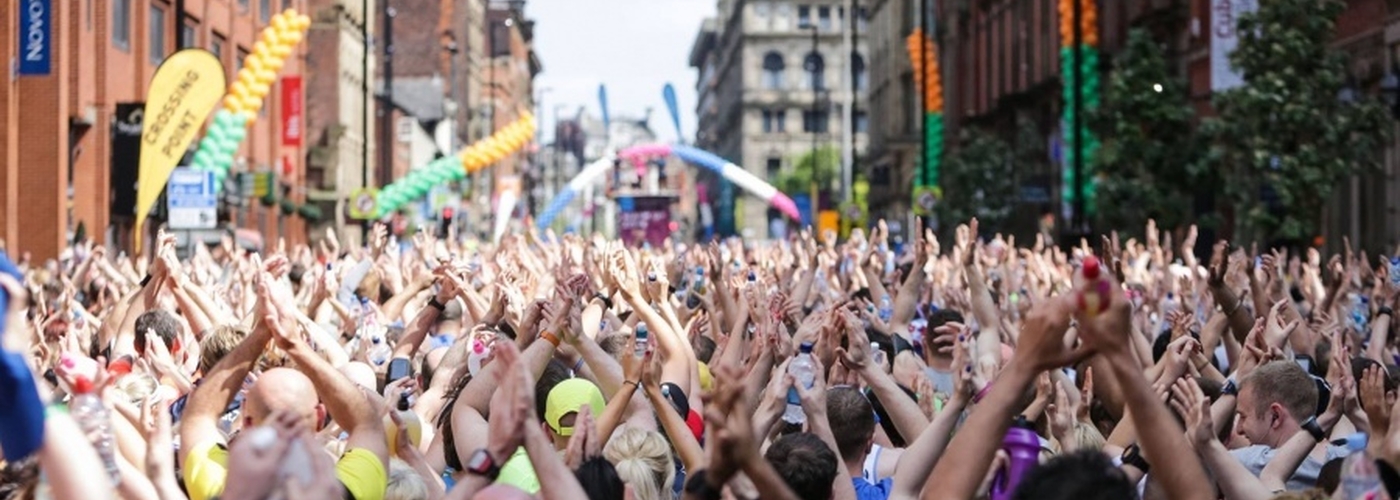Here's what to eat, drink and do before this weekend’s event (28 May)
Thousands of ambitious runners are expected to pour into the city centre this weekend ( Sunday 28 May) to participate in the Great Manchester Run. Despite the recent terror attack on Manchester’s Arena and the increased threat level in the UK, security officials have given the annual event the go-ahead. The news comes with celebration, reinforcing the positivity embraced by Mancunians in light of the recent terror attacks.
“It’s our spirit, we don’t cancel things. We are not going to be defeated,” commented newly-elected Mayor Andy Burnham prior to a meeting with the Prime Minister (Telegraph, 23 May). The Mayor plans to run the race alongside estimates of over 30,000 people to raise money for his newly established Homelessness Fund. Other high profile runners include three-time Olympic gold medallist Tirunesh Dibaba and former WBA Lightweight World Champion Anthony Crolla who will be raising money to support autism charities.
The weather this weekend is reported to be warm but with some sporadic showers, with Sunday’s race day looking promisingly rain-free (BBC).
With just a few days to go until thousands of runners take to the course, we’ve rounded up the best ways to prep for this weekend’s run:
Eat right (and by right, we mean clean)
Regardless of what you think about the whole clean eating trend, there’s no doubt that you’ll need to eat healthy in the run up to a 10K. Bluntly put; if you eat rubbish, you will feel rubbish, and why would you want to feel rubbish when you’re about to tackle a 10K?
So, what should you eat pre-race? Eat what works for you, says Runner’s World, though the magazine does suggest grazing on small amounts of carbs throughout the day before the race.
Whilst carbs and water are key to consume pre-race day, that doesn’t mean binging on pasta. Try focusing on eating whole grains, fruits, vegetables and healthy fats says Active.com. For a pre-race plate, fill one-third to one-half of your plate with complex carbs, such as pasta, brown rice or grains. Then complete your dish with protein and a small portion of vegetables. Difficult-to-digest foods including coffee, refined sugars and spicy food are all on the ‘avoid’ list by Women’s Health – aggravating your digestive system is the last thing you want to do pre-run.
Don’t try anything new
The days before the race are not the time to try out new trainers or some whacky workout you’ve seen on YouTube. Stick to what you know and carry on doing what has worked for you so far.
Get off your feet
Runner’s World recommends resting two days before the race, to allow your legs to recharge. If you need to burn off some of that nervous energy the day before the event, go for a very slow, very short run (no longer than 15 minutes). Remember to relax, try to stay off your feet and leave those mad dashes around the Trafford Centre for another week.

Get to know the course
Whether you’re a regular runner or tackling 10K for the first time, make sure you familiarise yourself with the course before you set off. Get to know some of the key landmarks to look out for on the day to help you pace yourself – the 10K course will swing past United’s Old Trafford stadium, the Lowry and the sky-scraping Beetham tower. If you’re braving the half marathon this Sunday (good on you), then look out for the Etihad stadium in addition to the above popular landmarks, as well as a stint along the Mancunian way.
Live bands, Key103 sections and charity cheering points will be sprinkled across the course to ensure you stay pumped ‘til the finish line.
Get ready the night before
Layout your gear and get some good shut-eye – getting that recommended eight hours is more important than ever.
Arrive early on the day
You don’t want to be running to the start line so arrive an hour before your start time. Plan your travel route in advance and keep an eye out for any disruptions.

Warm up
A proper warm up will help you transition from stop to go more comfortably come crunch time. Active.com recommends a warm-up 10-15 minutes before you start a race. Walk briskly for three minutes, then run easy for five minutes and finish with four or more ten-second bursts of faster running.
Don’t put too much pressure on yourself
Start slow and pace yourself. Runner’s World suggests you run the first ten percent of the race slower than you normally would, with the idea that you’ll finish strong. Don’t try to “bank” time by bombing it along for the first 5K, as you’ll burn out (and end up with a painful ‘finish photo’). Stay even and save your energy for that final stretch.
Smile at the finish
Sweaty and sore though you may be, don’t forget to flash that finish-line smile. You’ve made it this far, so don’t fall at the final hurdle - smile.
Visit the official Great Manchester Run website for all the latest information about the event.










